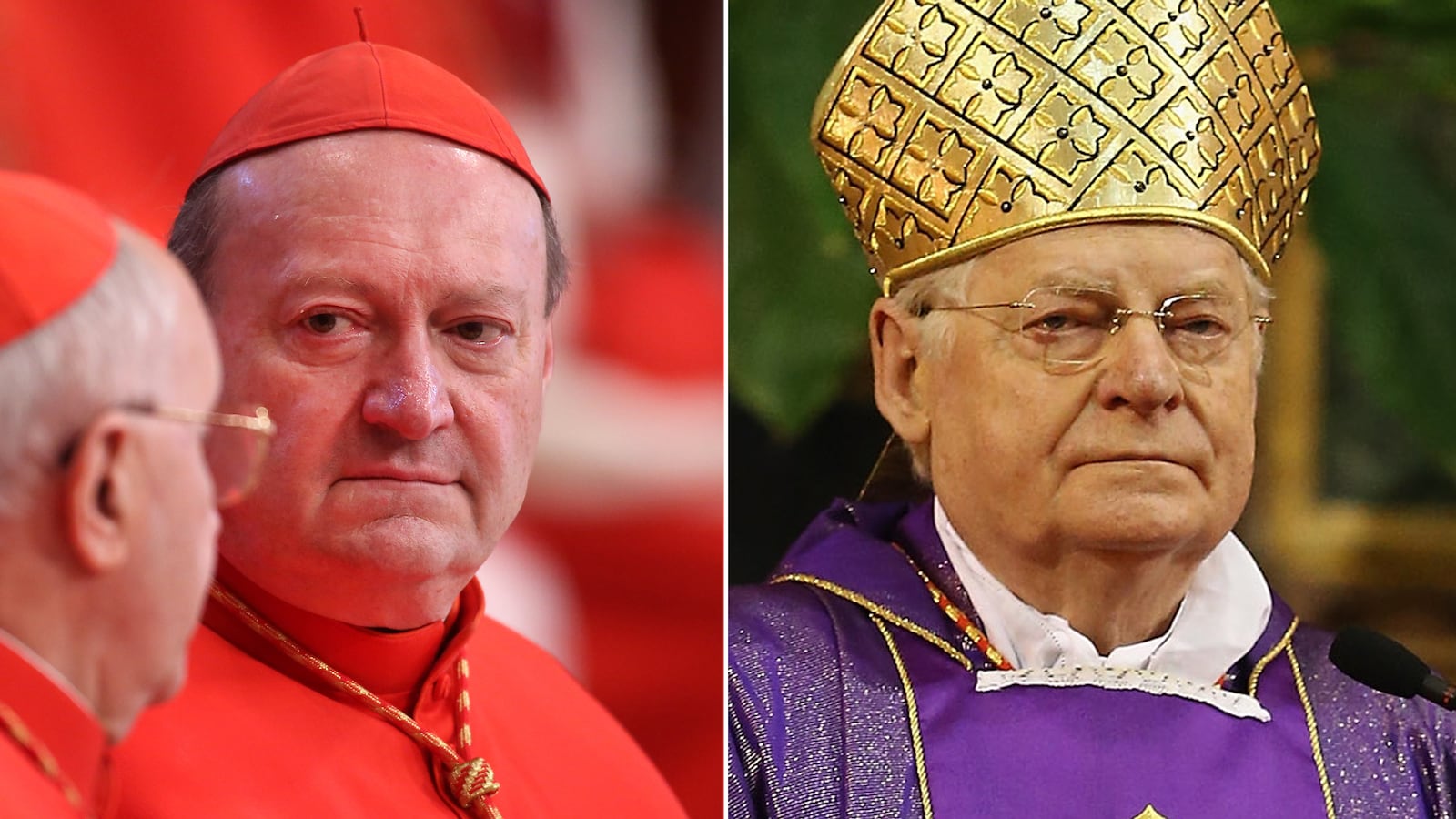When Polish Cardinal Karol Wojtyla was elected as Pope John Paul II in 1978, he was the first non-Italian pontiff in nearly four centuries. German Cardinal Joseph Ratzinger, who became Pope Benedict XVI in 2005, followed suit as the second.

Now many Italians feel it’s their turn again. “Basta,” Maria Grazia Pallotti said after she left Sunday mass in Rome’s district of Monti near the Colosseum. “We’ve had two foreign popes in a row, and now it’s time to get an Italian back.”
There are two top Italians vying for Saint Peter’s seat: Angelo Scola, the archbishop of Milan, and Gianfranco Ravasi, the president of the Pontifical Council for Culture.
If Italians cardinals vote for the next pope according to nationality, they can stop any cardinal from advancing. With 28 voting members, it’s the strongest bloc in the College of Cardinals tasked with electing the pope.
However, the Italian bloc is also the most divided by internal disputes—in part because of all the scandals that have plagued the church that have focused on the mostly Italian-run Roman Curia, such as financial improprieties within the Vatican bank and a slew of saucy sex sins that climaxed with allegations of a gay sex ring in Vatican City. Many of the most salacious details surfaced in the so-called VatiLeaks affair, when Benedict’s trusted butler Paolo Gabriele was convicted of stealing documents and leaking them to an Italian journalist who published them in a book.
And the scandals appear never ending. This week, revelations emerged that the Vatican, under the leadership of Secretary of State Tarcisio Bertone, spent €20 million—about $25 million—to pay for around 20 apartments in a Roman palazzo on Via Carduccio near the swanky Via Veneto in Rome to house its Congregation for the Evangelization of Peoples.
More than a dozen priests live in the building, which shares more than a few walls with Europa Multiclub, billed as the largest gay sauna in Europe. The entrances to the two establishments are just a few feet apart. The exclusive men’s club’s website features events like “bear nights,” when hairy men strip down to their intimate apparel before donning priest vestments. The website describes the nights with this catchy advertisement: “a hairy, overweight pastor of souls is liberated by the music of his clergymen, wearing only a thong because he wants to expose body and soul.” No doubt any cardinal electors who read that news before heading to the conclave will think twice about giving the papacy to anyone intimately involved with the Curia’s recent scandals, not least of all this property acquisition.
The leading Italian “popeful,” Scola, the 71-year-old archbishop of Milan, is not part of the Curia, the Vatican’s governing body, and is seen as a potential reformer whose skills as an administrator would fit the papal profile that Vatican experts say emerged from the 10 closed-door congregational meetings held this week. He appears not to have won the backing of his countrymen, however, and is instead reportedly backed by the 11 American and 3 Canadian cardinal electors, who are seen as an influential voting bloc in their own right.
The other top Italian contender, 70-year-old Ravasi, is seen as a Vatican insider, but according to National Catholic Reporter Vatican expert John Allen, he has managed to stay detached from the scandals that have rocked the Curia. “Ravasi is a Vatican insider, but one not associated with any recent crisis,” Allen wrote in his profile of Ravasi. “Many cardinals want the next pope to clean house inside the Vatican, but they also want someone who knows the system. Those are two qualities tough to find together, since creatures of the bureaucracy often aren’t necessarily the right ones to reform it.”
Surprisingly, perhaps, the curial cardinals of the Italian bloc have reportedly pinned their hopes on the Brazilian contender, Odilo Scherer, son of German immigrants who is seen as the one man who could clean up the Vatican’s corrupt financial mess without getting too involved in other curial matters.
The Institute for Works of Religions, as the Vatican bank is called, was subject to a two-year probe by Italian authorities last year into allegations of money laundering and a lack of adherence to European norms that block financing of terrorists and criminal gangs. The Vatican even briefly lost its credit-card privileges after European regulators demanded greater transparency, leaving thousands of tourists cash-strapped. According to carefully crafted snippets of information released by the Vatican press office, the College of Cardinals heard ample reports on the sordid state of their financial affairs during this week’s congregations, implying that tidying the books is a top priority.
Whether the Italian bloc can muster together enough votes to support one cardinal or simply use their voting power block the rise of one they don’t like—who would essentially be one of their own countrymen, since Scola is Italian—will all be revealed only with the white smoke pours out of the Sistine Chapel chimney.






